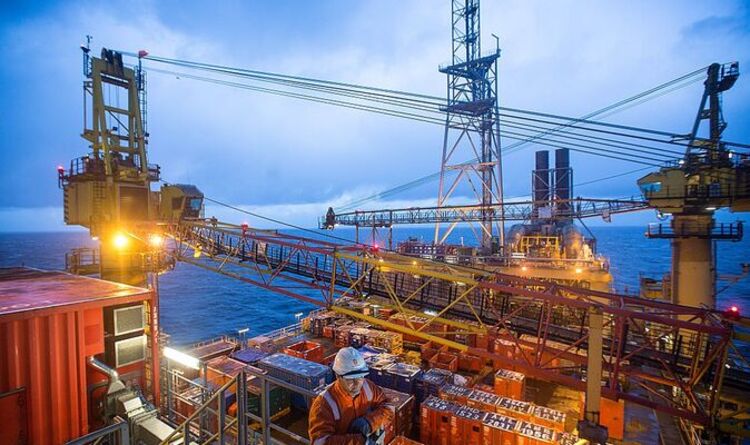Alok Sharma: North sea gas extraction won't solve energy crisis
We use your sign-up to provide content in ways you’ve consented to and to improve our understanding of you. This may include adverts from us and 3rd parties based on our understanding. You can unsubscribe at any time. More info
Shell announced it would pull out of plans to develop the Cambo oilfield located west of the Shetland Islands, blaming a weak economic case for investment and a potential for delays back in December. At the time oil was trading at just under $70 (£53.12) a barrel however disruption to supplies from Russia has seen prices explode since the start of the Ukraine conflict. After peaking over $130 (£98.65) a barrel, Brent crude is now trading around $112 (£84.99) with further fears over prices after reports emerged of a potential Russian oil ban being considered by the EU.
With oil now thought to be set for a period of sustained high prices, the economic case for the Cambo field could change considerably. So far Shell has not yet sold its interests in the field.
Sources close to the matter have told the BBC that, though the company’s official position has not changed, “it did acknowledge that the economic, political and regulatory environment had changed enormously since the decision was announced just three months ago”.
Express.co.uk has contacted Shell for further comment.
The re-evaluation comes as increased attention is focused on the North Sea as the UK looks to improve its energy security.


In a sign of the renewed focus, the Oil and Gas Authority this week announced a rebrand, naming itself The North Sea Transition Authority (NSTA).
The regulator’s Chief Executive Dr Andy Samuel said: “The UK is moving to a net zero, low carbon future and the Russian government’s invasion of Ukraine reinforces the need for pace.
“Meanwhile oil and gas remain vital for energy security as we transition. The NSTA is ideally placed to support both.”
Shell itself has welcomed the move with Senior Vice President for UK upstream Simon Roddy describing the North Sea as “the UK’s greatest energy asset”.

Despite the insistence of the NSTA that the North Sea will play a role in energy transition, the Cambo field has faced strong criticism for increasing the use of fossil fuels.
In the run-up to the COP 26 summit, it was the target of protest for environmental groups such as Greenpeace, who labelled it “Boris Johnson’s monumental climate failure”.
The project was also opposed by Scottish First Minister Nicola Sturgeon.
The UK Government meanwhile is putting its commitment firmly behind North Sea oil and gas following a meeting with energy industry leaders including Shell, BP, Esso and Equinor.
DON’T MISS:
EU banks desperate to keep financial link to UK face Brussels threat [REVEAL]
Housing market looks “less rosy” despite strong start to the year [ANALYSIS]
Ruble slides as Russian markets begin reopening [SPOTLIGHT]

Writing on Twitter this week Business and Energy Secretary Kwasi Kwarteng said: “The UK must back North Sea oil and gas while we transition to cheap, clean power.
“It would be complete madness to turn off our domestic source of gas in such an uncertain world.”
In a further push on energy security the Prime Minister has also hosted a roundtable with nuclear industry leaders this week.
According to Downing Street Mr Johnson set out a vision for nuclear to be a “major part” of the UK’s future energy as well as discussing ideas to help projects become operational more quickly.
Source: Read Full Article
